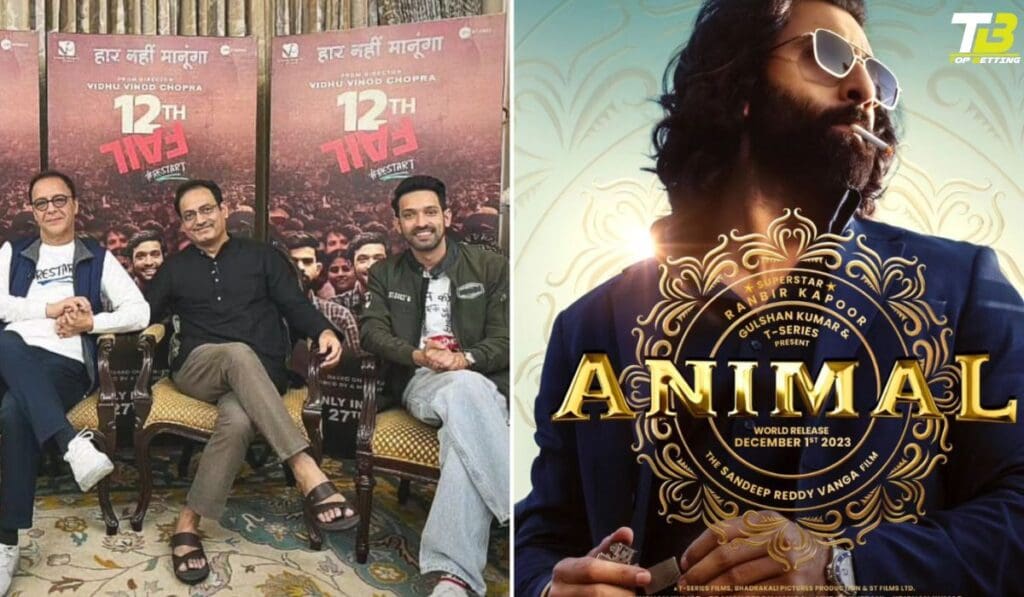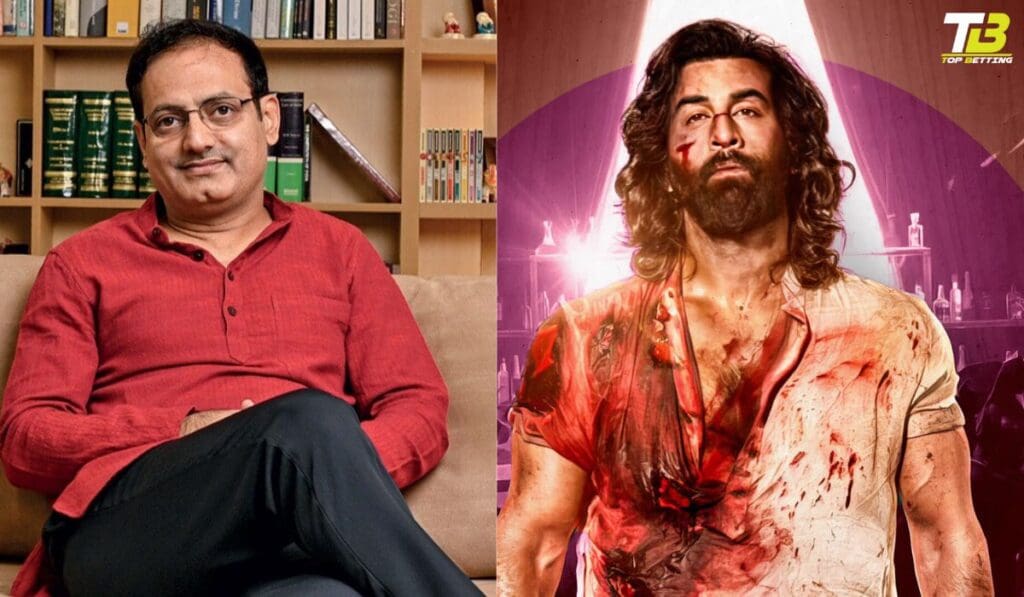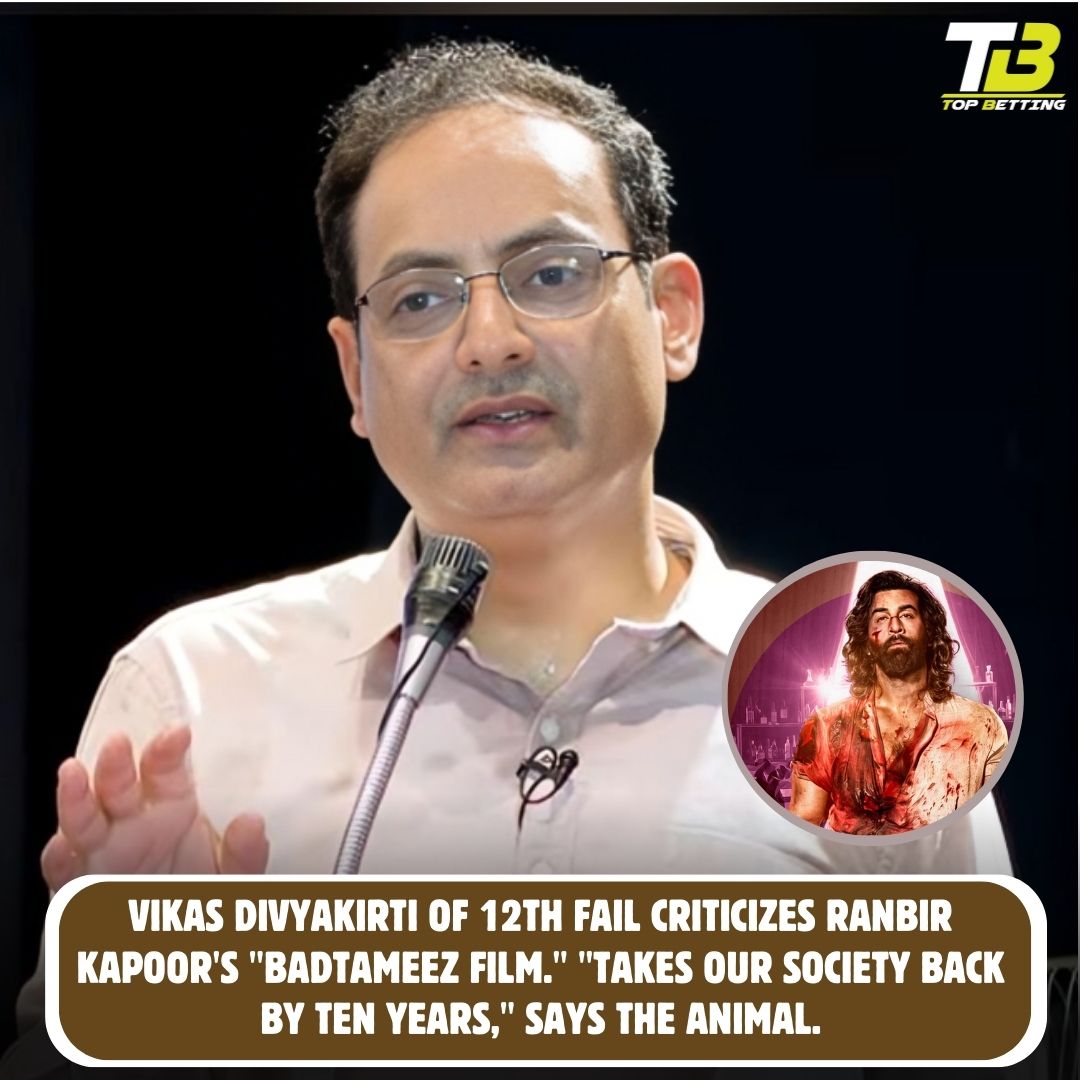
Vikas Divyakirti criticizes Ranbir’s Animal | Badtameez Film
Introduction
The film industry is no stranger to controversy and criticism. Recently, the film “Animal,” directed by Sandeep Reddy Vanga and starring Ranbir Kapoor, has sparked heated debates and divided opinions. One notable individual who has strongly voiced his disapproval is Vikas Divyakirti, an ex-IPS officer, educator, and actor known for his role in the film “12th Fail.” In this article, we will delve into the controversy surrounding “Animal,” explore Vikas Divyakirti’s criticisms, and analyze the societal impact of such films.
One excellent illustration of that is Animal. It wasn’t bad content, mind you, but they didn’t seem regretful or second-guessing themselves. With no shame, they told the narrative. And observe how the movie was put together. Tell a story without regretting it. However, excellent content can be presented in an unpersuasive way.
The Rise of “Animal”
“Animal” took the box office by storm, raking in over 1000 crore and solidifying Ranbir Kapoor’s position as a superstar. However, the success of the film does not overshadow the concerns raised by critics and individuals like Vikas Divyakirti. The film’s director, Sandeep Reddy Vanga, known for his previous controversial film “Kabir Singh,” once again pushed boundaries with “Animal.”
Vikas Divyakirti’s Strong Disapproval
Vikas Divyakirti, in an interview with Neelesh Misra on the Slow Interview series, expressed his disappointment with “Animal.” He criticized the film for lacking social value and accused it of setting society back by 10 years. Divyakirti’s main concern was the portrayal of the lead character, played by Ranbir Kapoor, who exhibited animalistic behavior. He questioned the purpose of creating a film that glorifies such behavior without offering any redeeming social message.
The “Lick My Shoe” Scene and its Controversy
One specific scene in “Animal” drew significant attention and controversy. In this scene, Ranbir Kapoor’s character asks Triti Dimri’s character to lick his shoe as a test of her love. Divyakirti found this scene particularly disturbing, as he believed it could influence young individuals with a feudal mindset to replicate such behavior. He emphasized the potential dangers of normalizing abusive acts in the name of entertainment.
The Impact of Films on Society
Films have a significant influence on society, and they hold the power to shape opinions and behaviors. The controversy surrounding “Animal” raises important questions about the responsibility of filmmakers and the impact their work can have on society. While some argue that films should be considered purely as entertainment, others stress the need for socially responsible storytelling.
The Success vs. Responsibility Debate
The success of “Animal” raises a larger debate about the balance between commercial success and social responsibility in the film industry. While the film’s financial achievements cannot be denied, critics argue that it is equally essential to consider the ethical implications of the content being produced. Filmmakers must strike a balance between creating engaging stories and upholding societal values.
Vikas Divyakirti’s Background and Expertise
It is crucial to understand Vikas Divyakirti’s perspective on “Animal” in the context of his background and expertise. Divyakirti is an ex-IPS officer and a respected educator for UPSC exams. His role in the film “12th Fail” showcased his acting skills and provided him with a platform to voice his opinions on the film industry. Divyakirti’s criticisms should be considered in light of his extensive experience and understanding of societal issues.
The Responsibility of Filmmakers
Filmmakers have a significant role to play in shaping society through their work. While artistic freedom is crucial, it is equally important for filmmakers to consider the potential impact of their stories on audiences. By incorporating social responsibility into their narratives, filmmakers can contribute to a more positive and inclusive society.

The Importance of Constructive Criticism
Vikas Divyakirti’s criticism of “Animal” highlights the importance of constructive feedback in the film industry. Rather than dismissing his opinions outright, it is essential to engage in a dialogue and evaluate the merits of his arguments. By fostering an environment where diverse perspectives are heard, the industry can grow and evolve.
The Future of Socially Conscious Filmmaking
The criticisms surrounding “Animal” and similar films raise questions about the future of socially conscious filmmaking. As audiences become more discerning and demand greater accountability from filmmakers, it is likely that the industry will witness a shift towards more responsible storytelling. Filmmakers who can strike a balance between entertainment and social impact are likely to thrive in this evolving landscape.

Conclusion
The controversy surrounding “Animal” and Vikas Divyakirti’s strong criticism highlight the ongoing debate about the responsibility of filmmakers and the impact of films on society. While commercial success is important, it should not overshadow the need for socially responsible storytelling. As the film industry continues to evolve, it is crucial for filmmakers to consider the potential implications of their work and strive to create content that entertains while also inspiring positive change in society.











